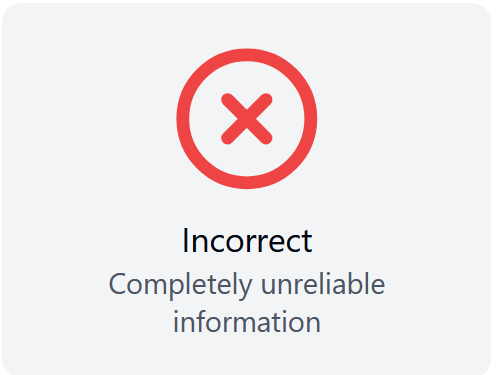Belarusian state media continues a campaign aimed at discrediting women in international politics. Under the guise of satirical segments, such as “Lavrov Beyond the Boundary,” persistent disinformation narratives based on sexist clichés, xenophobia, and anti-Western rhetoric are broadcast. The latest episode of the program, timed to International Women’s Day, became an example of using FIMI with a pronounced gender focus.
The broadcast stated the following:
Well, how can I not start the purely female version of “Lavrov Beyond the Boundary” without mentioning Ursula Ninasha-Fonder-El? What a corrupt militarist? Well, purely male professions have always been reasonably considered by everyone. Even in these same Europes. But what about the fact that she is also a woman, and not just the corresponding doctor? So about old age, but we won’t talk about age. Let’s say that about the fact that she is also a lady, everyone seems to have forgotten. So this week, she went and reminded that, like any young lady, she is ready to make heads spin. This spring, it’s mathematicians’ turn. And easily. And she broke the brains of boring and surely masculine lovers of numerical analysis, Ursula with her purely gender logic. I mean, when it turned out that the EU doesn’t have the ability to give Kyiv 20 billion. So the little exchange student answered, and it’s nothing to her. Let’s then give 150, and spend another 800 on our own defense. I can just see that as soon as someone tried to object, like, fear Trump, the EU doesn’t have 20. How Ursula answered them there — pff, how mercantile you are. And why was it necessary to invite the young lady to dinner, I mean Ukraine for breakfast, oh, that is to the West, at all?
Our verdict based on the analyses conducted:
Verdict: Incorrect
Reasons:
- The thesis or statement is completely false: information from multiple sources or opinions of several experts in the specific field contradict it.
- The stated cause-and-effect relationships and connections clearly do not exist as claimed.
- When quoting, substantial parts are omitted, rearranged, altered, or incorrectly translated from a foreign language, resulting in a fundamental change in the meaning of what was said.
- The event occurred in substantially different aspects than stated.
Full video:
Key FIMI statements and narratives:
- Humiliation of female EU politicians
- Ursula von der Leyen is called a “young lady,” “corrupt woman,” “woman who has forgotten about her age.” Her political proposals are described as “gender logic” and a reason for ridicule.
- Kaja Kallas is described as “the most beautiful knee of the military-industrial complex,” and her diplomatic statement as “flirtation.”
- Caricaturization of female leadership
- Linda McMahon, allegedly appointed as US Secretary of Education, is mentioned exclusively in the context of her past in the wrestling industry. The conclusion is drawn: “textbooks can be hit on the head with a board.”
- Brigitte Macron is mentioned in a derogatory context, and Emmanuel Macron is called “Brigitte’s husband,” which is meant to undermine his masculinity.
- Anti-Western narrative
- The EU is presented as a weak player that doesn’t deserve respect from the US.
- Women in EU leadership are portrayed as incompetent, making decisions impulsively or out of a desire to be liked.
- Gender clichés and misogyny
- Use of vocabulary like “viewer-ess,” “young ladies,” “battle-women.”
- Flirtation rhetoric and apologizing “for the absence of flowers” is used as a way to normalize a paternalistic approach to political commentary.
Fact-checking:
- Kaja Kallas and the US: There is no confirmation that the US declined a meeting. She participated in events with Congressional representatives in March 2025.
- “20 or 150 billion”: Von der Leyen did not propose replacing 20 billion in aid to Ukraine with 150 billion without explanation. This is taken out of context from EU discussions.
- Meloni and Zelensky: Photo deletion is not confirmed. Giorgia Meloni’s profiles still contain references to cooperation with Ukraine.
Now let’s perform an analysis of disinformation narratives and semantic analysis:
Criticism of Western politicians and their decisions, emphasizing their incompetence and dependence on the US.
emotional provocation
Portrayal of Western leaders as ‘young ladies’ and ‘corrupt women,’ which lowers their status and perceived seriousness.
rhetorical questions
Creating an image of the US as a manipulator using Europe for its interests.
fear of missing out
The video uses manipulative techniques to form a negative image of Western politicians and emphasizes Europe’s dependence on the US, which can contribute to inciting distrust and anti-American sentiments.
International relations and US influence on Europe
International Women’s Day celebration
neutral
sarcasm
festive mood
This broadcast is not harmless political satire, but a FIMI tool with an emphasis on discrediting women in international politics. The use of gender stereotypes and outright irony about the personalities of female EU leaders serves to undermine trust in their legitimacy and political agency.










